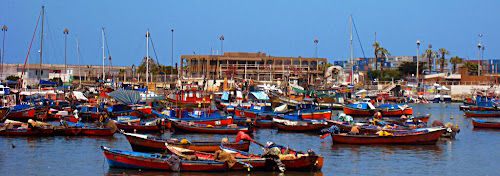December the twenty-fifth and my Christmas tree count has yet to reach double figures. The only forests for sale are the split eucalyptus logs in the 'Lena' yards - the log stores. Stacked and wrapped, ready to join the steak on the asado tonight. In the mercado, the minimal aisle space devoted to tinsel and baubles is far out lengthed by the wine and beer supply. The municipality painters have spruced up the poles and switched on the lights - the traffic lights. Donald Trump has applied his monicker and visage to the outside of his new tower, and his estate agents are pencil sharpening in expectation. It's all in anticipation of one day. Saint Stephan's Day, and the start of The Season. Argentines like to celebrate in their own homes and then leave, en masse, on holiday the following day. They'll be on their way, roofracks swamped by a paraphernalia of beach.
Our experiences of an Uruguayan Christmas is noticeable for it's lack of societally imposed stresses. No panic buying. No manic consumption. No Xmas card angst. No frozen or fresh debate. No Toblerone. No 'sprouts. However there are some small hints. It's imminent arrival is heralded by the itinerant firework stalls by the roadside and the shelf space given over to the festively dressed boxes of 'pan dulce'. The imported whiskies of dubious provenance and festive price inflation. So in the absence of any Yuletide prompts, I press the wireless into service, log on to a Christmas themed station. By the time they've played 'Feliz Navidad' by three differing artistes, three consecutive times, allowed Jonah Louie to 'stop the cavalry', Bing to 'let it snow' and Noddy Holder to utter the indubitably prophetic line; 'look to the future everybody, it's just begun'', I know that it must be Christmas Time.
However, this is South America, and an event, no matter what event, would not be complete without Noise. The sun is three feet above the horizon, and yet a war zone has erupted. The machine gun rattle of fire crackers, the sniper fire of squibs, that's overlaid by the sporadic crump of heavy ordnance. The bombardment has begun, family parties have started, and will continue. The dogs now reduced to a frenetic baying, but even they are drowned out as midnight passes and the full offensive is unleashed. An uncoordinated bedlam of pyrotechnics. A continuous cacophony of sonics. A preamble for the next Event. New Year.
Do hounds get hoarse? Do cows vote for Christmas? Some do. Most don't. Do I know that it's Christmas?







































